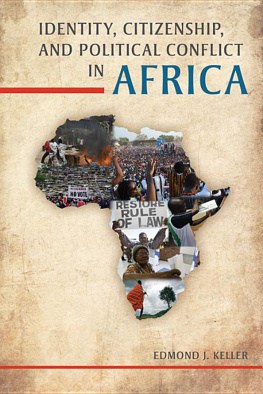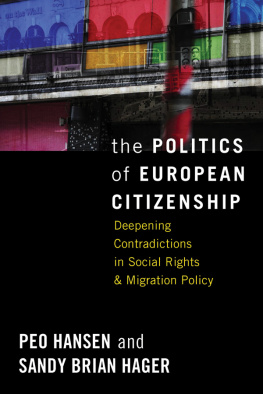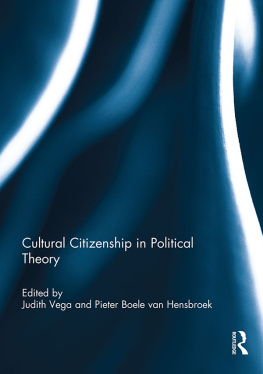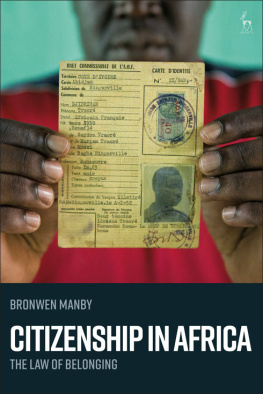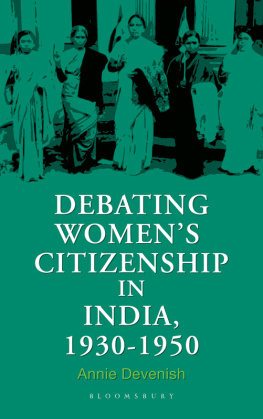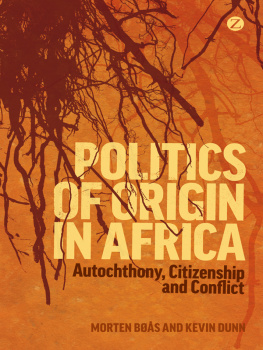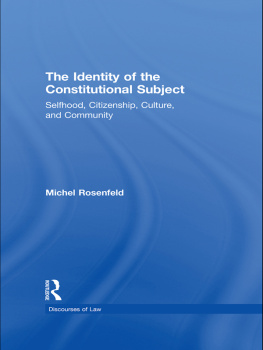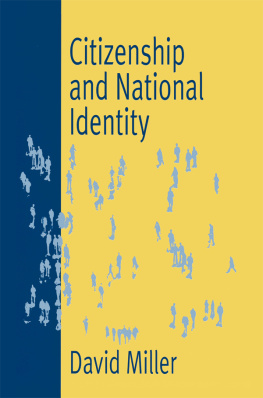Identity, Citizenship, and Political Conflict in Africa
Identity,
Citizenship, and
Political Conflict
in Africa
Edmond J. Keller
Indiana University Press
Bloomington and Indianapolis
This book is a publication of
Indiana University Press Office of Scholarly Publishing Herman B Wells Library 350 1320 East 10th Street Bloomington, Indiana 47405 USA iupress.indiana.edu
Telephone orders 800-842-6796 Fax orders 812-855-7931
2014 by Edmond J. Keller
All rights reserved
No part of this book may be reproduced or utilized in any form or by any means, electronic or mechanical, including photocopying and recording, or by any information storage and retrieval system, without permission in writing from the publisher. The Association of American University Presses Resolution on Permissions constitutes the only exception to this prohibition.
The paper used in this publication meets the minimum requirements of the American National Standard for Information SciencesPermanence of Paper for Printed Library Materials, ANSI Z39.481992.
Manufactured in the United States of America
Library of Congress Cataloging-in-Publication Data
Keller, Edmond J. (Edmond Joseph), [date]
Identity, citizenship, and political conflict in Africa / Edmond J. Keller.
pages cm
Includes bibliographical references and index.
ISBN: 978-0-253-01178-7 (cloth : alk. paper) ISBN: 978-0-253-01184-8 (pbk. : alk. paper) ISBN: 978-0-253-01189-3 (ebook) 1. AfricaPolitics and government. 2. CitizenshipAfrica. 3. Group identityAfrica. 4. Identity politicsAfrica. 5. National characteristics, African. 6. NationalismAfrica. 7. NationbuildingAfrica. I. Title.
JQ1879.A15K45 2014
305.8096dc23
2013030356
1 2 3 4 5 19 18 17 16 15 14
If you dont know your history, if you dont know your family, who are you?
Mary Pipher
Contents
Preface
When I first entered graduate school and decided to, fell into, or was drawn by my mentors into the study of African development and change, the continent was at the earliest stages of its sociopolitical transitions from colonial rule to democracy. I can recall that at the time, there was a great deal of optimism thatdespite what looked like a rocky road aheadindependent African states would slowly but surely transform themselves into liberal democracies similar to those found in the West. One of the primary assumptions of scholars at the time was that Africa needed both national and regional political integration; however, national integration was the most immediate objective. In other words, scholars believed that highly ethnically diverse states could be transformed into multiethnic or multitribal political systems comprised of individuals and ethnic communities that would see the nation states to which they belonged as terminal communitiesthe community to which one owed her/his political primary allegiance. The key was thought to be getting institutions right. Democratic political institutions and liberal economic and social institution were thought to be the panaceas necessary and sufficient to move Africa toward this destiny.
However, after a half century of independence, the goal of national political integration is as elusive as ever. Nations have been built, and the African citizens in those nations appear to accept that they have allegiance to the particular nation-states to which they belong; but, the allegiance of their citizens tend to be more often than not divided between the nation-state and the ethnic communities to which they claim ancestry. In some cases, attachment to the subnational community is more fiction than reality, but is clung to as though it were primordially based. The question I was thus confronted with is, Will the nation-building project in most African states be under construction forever? Or, secondarily, How necessary is it for the persistence and consolidation of African states for there to be developed an exclusive sense of national identity that is the primary political identity for citizens?
Over the years these problematic questions have consumed me. Rather than continue to live with this puzzle, I decided to attack it head on through my research. What my research reveals is that no matter what the answers to these questions are, one of present-day Africas most burning political issues is the establishment of widely accepted notions of national citizenship that apply equally across ethnic communities. Citizens themselves want to solidify their rights as individuals and as ethnic groups to belong to a particular national community. States that seek to reduce incidents of ethnic conflict to create the political stability needed for economic development also would like to resolve this issue. Yet, the right formulas for achieving this end have not been identified and widely accepted. This conundrum led me to begin this project on rethinking identity, citizenship, and social conflict in Africa.
Needless to say, the ideas and arguments contained in this book are my own, and I alone am totally responsible for any errors of fact or interpretation that might occur in the following pages. At the same time, my work has benefited greatly from my extensive field experiences and travels throughout Africa, particularly in Kenya, Ethiopia, Sudan, Tanzania, South Africa, Nigeria, and Uganda. Each step along the way, I encountered examples of why citizenship is so valued by the average citizen and why conflicts over this issue are at the root of so much political instability. My research has continued to force me to grapple with this issue.
I owe a great debt of gratitude to colleagues who are too numerous to count, but some deserve special words of thanksthose who especially encouraged me along the way or commented on earlier articulations of my ideas, including the late Don Rothchild, Edith Mukudi Omwami, Ruth Iyob, Crawford Young, Georges Nzongola-Ntalaja, Lahra Smith, Peter Little, Abubakar Momoh, Richard Ralston, Eghosa Osaghae, Kamal Sadiq, and Beth Elise Whitaker. A number of students were subject to my poorly formed ideas about this topic. They read my work and gave me comments, which I took very much to heart. Special thanks go out to Cynthia Ugwuibe, Benjamin Musuhukye, George Ofosu, and Sybille Nyeck. Aline Hankey was the research assistant who was with this project from beginning to end. I could not have come to this point without her constant input, feedback, and studious efforts to uncover the research sources used to put the work together. Other research assistants who helped immensely and deserve my deepest appreciation are Munga Julia Njeri, Elaine Blakeman, Denise Liu, and Annalisa Zox-Weaver.
Edmond J. Keller
Los Angeles, California
January 15, 2013
PART 1
Citizenship and Political Conflict in Contemporary Africa
1
Identity, Citizenship, and Nation Building in Africa
Nigeria is not a nation. It is a mere geographical expression.
Chief Obafemi Awolowo, Path to Nigerian Freedom
We feel dissatisfied and unhappy when people tell us that we are not of this place. We have been here for over two hundred years . We know no other place other than here so we have nowhere else to go.
Zangon-Kataf, Warri, Nigeria, Human Rights Watch interview, November 16, 2005
From their very inception as independent polities, African states have struggled to manage identity politics. Following the European Scramble for Africa that began in 18841885, colonial powers imposed their own artificial criteria to create states in Africa. Over less than a century, African peoples were grouped according to the rules of competing European powers that had formed their colonial African possessions and established effective control over them. As a matter of administrative convenience, the colonialists organized their African subjects according to assumed ethno-linguistic characteristics. Initially, they gave littleif anythought to the notion of independent African states; however, this attitude began to change around the time of the Second World War and, by the mid-1960s, almost the entire African continent was again free of European rule. Rather than returning to their original forms of political organization, however, African societies found themselves facing the need to form viable multiethnic and multicultural nation-states comprised of citizens rather than mere subjects. As they approached the challenge of nation building, African nationalist leaders aimed to create among what had until then been a multiplicity of parochial communities referred to as tribes, a sense of national unity, transforming them so that they would now have primary attachment to the newly created multiethnic nation-states. A common phrase of that time was, We must die as tribes and be born as a nation! This effort proved to be a formidable challenge for the leaders of these newly independent states, and became the subject of intense scholarly discourse.

